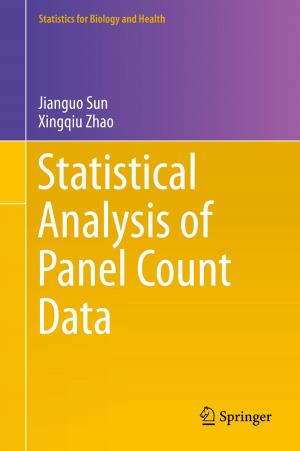Fuzzy Stochastic Optimization
Theory, Models and Applications
Nonfiction, Science & Nature, Mathematics, Applied, Computers, Advanced Computing, Artificial Intelligence, General Computing| Author: | Shuming Wang, Junzo Watada | ISBN: | 9781441995605 |
| Publisher: | Springer New York | Publication: | March 20, 2012 |
| Imprint: | Springer | Language: | English |
| Author: | Shuming Wang, Junzo Watada |
| ISBN: | 9781441995605 |
| Publisher: | Springer New York |
| Publication: | March 20, 2012 |
| Imprint: | Springer |
| Language: | English |
In 2014, winner of "Outstanding Book Award" by The Japan Society for Fuzzy Theory and Intelligent Informatics.
Covering in detail both theoretical and practical perspectives, this book is a self-contained and systematic depiction of current fuzzy stochastic optimization that deploys the fuzzy random variable as a core mathematical tool to model the integrated fuzzy random uncertainty. It proceeds in an orderly fashion from the requisite theoretical aspects of the fuzzy random variable to fuzzy stochastic optimization models and their real-life case studies.
The volume reflects the fact that randomness and fuzziness (or vagueness) are two major sources of uncertainty in the real world, with significant implications in a number of settings. In industrial engineering, management and economics, the chances are high that decision makers will be confronted with information that is simultaneously probabilistically uncertain and fuzzily imprecise, and optimization in the form of a decision must be made in an environment that is doubly uncertain, characterized by a co-occurrence of randomness and fuzziness. This book begins by outlining the history and development of the fuzzy random variable before detailing numerous optimization models and applications that include the design of system controls for a dam.
In 2014, winner of "Outstanding Book Award" by The Japan Society for Fuzzy Theory and Intelligent Informatics.
Covering in detail both theoretical and practical perspectives, this book is a self-contained and systematic depiction of current fuzzy stochastic optimization that deploys the fuzzy random variable as a core mathematical tool to model the integrated fuzzy random uncertainty. It proceeds in an orderly fashion from the requisite theoretical aspects of the fuzzy random variable to fuzzy stochastic optimization models and their real-life case studies.
The volume reflects the fact that randomness and fuzziness (or vagueness) are two major sources of uncertainty in the real world, with significant implications in a number of settings. In industrial engineering, management and economics, the chances are high that decision makers will be confronted with information that is simultaneously probabilistically uncertain and fuzzily imprecise, and optimization in the form of a decision must be made in an environment that is doubly uncertain, characterized by a co-occurrence of randomness and fuzziness. This book begins by outlining the history and development of the fuzzy random variable before detailing numerous optimization models and applications that include the design of system controls for a dam.















